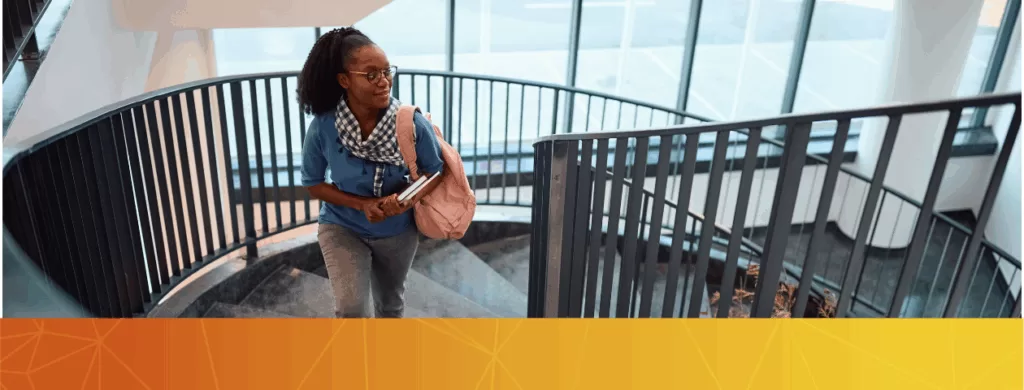
 The Syrian refugee crisis has left hundreds of thousands of people stranded across Europe. Of those, many are highly-educated and qualified, and many more would have been, had they had the opportunity to study. Understandably, a vast number do not have the requisite documents with them in order to prove any credentials they hold, making it very difficult for them to access either educational facilities or job roles both in Europe and beyond.
The Syrian refugee crisis has left hundreds of thousands of people stranded across Europe. Of those, many are highly-educated and qualified, and many more would have been, had they had the opportunity to study. Understandably, a vast number do not have the requisite documents with them in order to prove any credentials they hold, making it very difficult for them to access either educational facilities or job roles both in Europe and beyond.
While the EU has thus far been unable to implement a large-scale solution to this migration crisis, a number of universities across the continent and those from further afield are coming up with their own methods. In fact, there are already a number of schemes in place to help those in need access higher education and validate qualifications received in their home countries.
However, for these schemes to work, countries may need to adopt a standardised, communicative approach.
A standardised approach is needed
The European Association for International Education held a recent seminar in Amsterdam, aimed at discussing how best to integrate Syrian refugees into Europe’s higher education institutions. Ayselin Yildiz of Turkey’s Yasar University stated that universities should attempt to come up with their own solutions, and not wait for the EU as a whole to address the issue. This point is underlined by the urgent need for action, and a perceived lack of cooperation being felt on an international level – but it is also one that is fraught with its own issues.
 Independent action by individual universities offers no cohesion between schemes, not just on an international level, but also domestically. A disjointed approach such as this would also make collaboration difficult and without universities collaborating, there may be no way to regulate and process systematically. This would most likely lead to a chaotic system and one which could cause more issues down the line.
Independent action by individual universities offers no cohesion between schemes, not just on an international level, but also domestically. A disjointed approach such as this would also make collaboration difficult and without universities collaborating, there may be no way to regulate and process systematically. This would most likely lead to a chaotic system and one which could cause more issues down the line.
One programme helping to counter this concern is currently being trialled in Norway. The ‘Qualifications Passport for Refugees’ has been created by the Norwegian Agency for Quality Assurance in Education (NOKUT), in partnership with the UK’s National Academic Recognition Information Centre, (NARIC). The premise of the ‘passport’ is to help those without adequate documentation, or language skills, to be recognised for their level of education. It also takes into account any higher education which was undertaken, regardless of whether final qualifications were awarded, and any relevant work experience.
If the scheme is a success, it could be used as the standard method and rolled out across Europe.
Communication is key
Standardisation is a step forward, but there remains the pressing issue of communication. As so many of programmes aiming to support the migration crisis are currently specific to an institution, collaborating with other universities can be both difficult and time consuming, and this makes it likely that a great number of students will be left out.
 The Technical University of Berlin, for example, offers a programme called ‘In(2)TU Berlin’. This allows refugee students to sit in on lectures and receive student counselling. Counsellors can advise students on the best courses for them, according to their abilities, while listening in on lectures allows participants to understand the level they should be working at. The university has stated that it is its size that enables it to offer this programme; with around 30,000 students, it has the capacity and facilities to provide this kind of support. Universities without the size and resources may not be able to offer this kind of level of support, and without communication, building the kind of network which could cater to both the majority of refugees and the majority of universities seems impossible.
The Technical University of Berlin, for example, offers a programme called ‘In(2)TU Berlin’. This allows refugee students to sit in on lectures and receive student counselling. Counsellors can advise students on the best courses for them, according to their abilities, while listening in on lectures allows participants to understand the level they should be working at. The university has stated that it is its size that enables it to offer this programme; with around 30,000 students, it has the capacity and facilities to provide this kind of support. Universities without the size and resources may not be able to offer this kind of level of support, and without communication, building the kind of network which could cater to both the majority of refugees and the majority of universities seems impossible.
Spreading the word
The current situation also makes interacting with prospective students difficult. With no solid communication route, spreading the message about courses poses a large problem, especially at a time when many refugees are residing in more rural locations, while most universities are located urban areas.
 One PhD student described as a Syrian-Palestinian, Nour Munawar, who is attending the University of Amsterdam, suggested that a lack of social media presence may be contributing to the issue. Many universities still aren’t as active as they could be on social media, and considering it’s now the number one , a strong presence here could be the ticket to successfully conveying a message.
One PhD student described as a Syrian-Palestinian, Nour Munawar, who is attending the University of Amsterdam, suggested that a lack of social media presence may be contributing to the issue. Many universities still aren’t as active as they could be on social media, and considering it’s now the number one , a strong presence here could be the ticket to successfully conveying a message.
This issue is reiterated by the European University Association, which has created , with the intention of assisting refugee integration and increased communication between universities.
The efforts being made to help refugee students have the best of intentions, and are working to a small extent, but it’s clear that a more cohesive and continent-wide approach, stands the greatest chance of making a tangible difference.
Want to find out more? Take a look at how one university is tackling the crisis.



